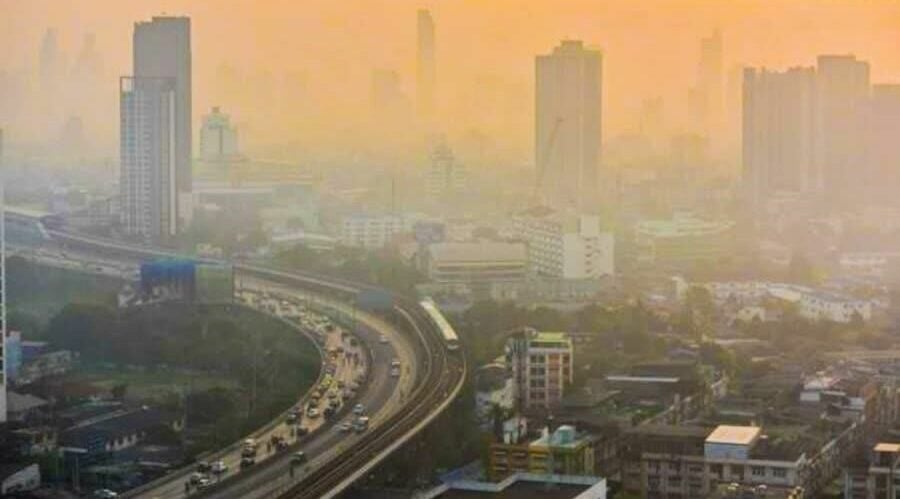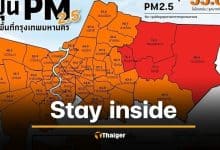Thailand strengthens efforts to combat PM2.5 pollution crisis

Prime Minister Paetongtarn Shinawatra has mobilised multiple government agencies to address Thailand’s PM2.5 air pollution crisis, with a focus on key ministries such as Natural Resources and Environment, Agriculture, Interior, and Transport. The Royal Thai Police are also involved in this coordinated effort, aiming to tackle pollution from agricultural burning, vehicle emissions, and industrial activities.
These measures are designed to alleviate the negative health and environmental impacts associated with poor air quality.
The Bangkok Metropolitan Administration (BMA) is spearheading preventative strategies, working closely with various related units. Projections suggest that by 2025, the PM2.5 issue may be less severe than it is today, thanks to these strengthened mitigation efforts.
The Department of Royal Rainmaking and Agricultural Aviation has initiated rainmaking operations in Bangkok, neighbouring provinces, and northern areas to address the persistent haze.
Recent data indicates that PM2.5 levels between December 2 and December 16 were lower compared to the same period last year. This improvement is attributed to the ongoing implementation of the Royal Rainmaking Principles, initially introduced by His Majesty King Bhumibol Adulyadej The Great.
The department’s 2025 weather modification plan includes innovative techniques such as creating cloud cover using sodium chloride agents, increasing cloud absorption capabilities with calcium-based formulas, and dispersing particulate matter through the atmospheric inversion layer with dry ice or water sprays, reported The Pattaya News.
The daily operations are specifically targeted to enhance air quality during the new year celebrations, thereby supporting public health and boosting tourism.
In related news, severe air pollution continues to affect 21 provinces across Thailand, with Mahachai in Samut Sakhon facing the most significant challenges due to high levels of PM2.5. Officials have warned residents in Bangkok and its surrounding areas to brace for worsening air quality over the next few days.
The Pollution Control Department’s Air Pollution Resolution Communication Centre reported on December 20 that PM2.5 levels, particulate matter measuring 2.5 micrometres or smaller, were recorded across the country. The 24-hour average levels ranged from 7 to 57.5 microgrammes per cubic metre (µg/m³), with the national standard set at a maximum of 37.5 µg/m³.
Latest Thailand News
Follow The Thaiger on Google News:


























